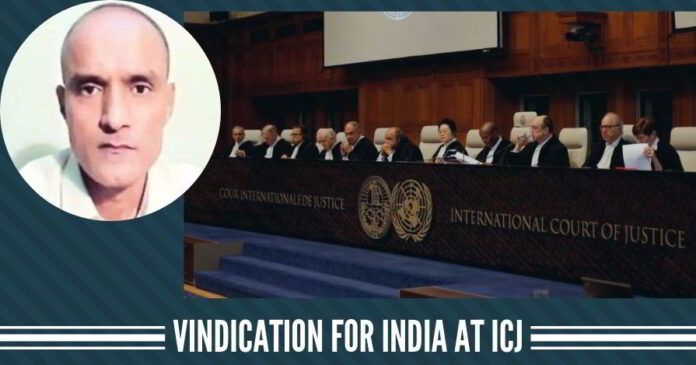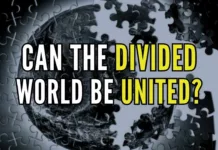
Everything that India sought from the international court was granted, leaving Pakistan red-faced before the global community.
India had ambitiously asked the International Court of Justice (ICJ) to annul the death sentence given to Indian national Kulbhushan Jadhav by a Pakistan military court, and his safe return to India. The ICJ rejected that plea. But apart from that, everything else that India sought from the international court was granted, leaving Pakistan red-faced before the global community and India a clear winner in the legal battle.
India demanded in the court that Pakistan give consular access to the sentenced Jadhav; the ICJ granted it. India said the military court trial had been unfair and non-transparent; the ICJ accepted it. India had sought continued suspension of capital punishment; the ICJ agreed to it. India had argued that the ICJ had the jurisdiction to entertain its plea on the issue, while Pakistan had questioned the international court’s jurisdiction; the ICJ maintained that it had the right to adjudicate on the matter. India asked for a review of the conviction; the ICJ directed Pakistan to do so.
Pakistan is today discredited before the international community for its patronage to terrorism and has been placed on the Financial Action Task Force’s grey over the issue, its economic condition is in a shambles, and it has few friends left in the global arena.
The 15:1 majority verdict (the lone dissenter was the Pakistani judge on the ICJ Bench) is an indictment of Pakistan on several counts. One, the international court held that Pakistan had not adhered to the Vienna Convention in denying Jadhav consular access. Two, Pakistan had not followed the internationally accepted norms of natural justice in refusing adequate legal help to the accused person in the course of the military trial. Three, it had sought refuge in technicality by claiming ambiguity over Jadhav’s nationality, despite India clearly stating that the arrested, accused person was indeed an Indian national. The ICJ placed Pakistan under an “obligation” to review the conviction.
While one part of the battle has been won, India has still a long way to go to secure Jadhav’s release. Miffed and humiliated by the ICJ order, Pakistan may well dig in its heels and make it that much more difficult for the wrongly convicted Indian’s release. It has three clear options before it: First, it sincerely works on the ICJ’s directives; second, it makes a pretence of doing so; and three, it refuses to accept the verdict. If it takes the first path, then there hope of Jadhav’s release. If it goes down the second — which, incidentally, it would have little difficulty in doing as it has mastered the art of deception, which is evident in the way it has dealt with terror groups that target India — then India has the option of returning to the ICJ with a fresh complaint and with the prospect of further isolating Pakistan in the international arena. The third option is theoretically existent; the US, for instance, had refused to implement an ICJ order based on a case brought by the Nicaraguan government in 1984. The ICJ has no powers to enforce the implementation of its order to a sovereign nation.
But Pakistan is not the United States of America. It is today discredited before the international community for its patronage to terrorism and has been placed on the Financial Action Task Force’s grey over the issue, its economic condition is in a shambles, and it has few friends left in the global arena. By contrast, India’s clout over the past few years has risen, both due to its economic might and its credentials as a robust democracy. It simply cannot afford to challenge the ICJ, which is the United Nations’ main judicial wing. This is the reason why Pakistan has assured that the verdict would be implemented as per law and that it remains a “responsible member” of the international community.
However, given Pakistan’s track record, one must take its assurances with a pinch of salt. We have the tragic case of Sarabjit Singh before us. He was captured by Pakistan and convicted for terrorism, although he maintained till the very end that he was a farmer and had erroneously strayed into Pakistani territory. After a brief trial in the Lahore High Court and later the Supreme Court, he was sentenced to death. But the execution was repeatedly delayed. Eventually, he was fatally attacked in a Lahore prison. His body was later handed over to the Indian authorities. That was 2013.
But this is 2019, and a new India. Then, India had not exercised its option of approaching the ICJ. It merely fretted and fumed over reports that Sarabjit Singh was being tortured to extract a confession, even as there was no material evidence to suggest that he had been complicit in the terrorist bombings in Lahore and Faisalabad. Besides making noise over Sarabjit’s killing, nothing substantial was done by India then to hold Pakistan responsible for the incident. There could be consequences this time for Pakistan, in case it allows a repeat of the Sarabjit Singh tragedy.
Note:
1. The views expressed here are those of the author and do not necessarily represent or reflect the views of PGurus.










